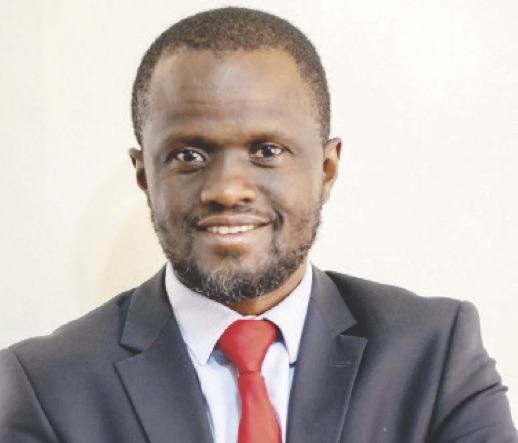
By Chinelo Obogo
[email protected]
For a long time, the National Association of Nigeria Travel Agencies (NANTA) has raised the alarm that Africa’s travel industry is under siege, as cross-border trading, driven by foreign agencies with global licences and cutting-edge technologies, steadily erodes the market share of local operators and undermines the continent’s aviation economy.
NANTA President, Yinka Folami, in a recent exclusive interview with Daily Sun, described cross-border trading as the single most damaging issue harming the country’s travel industry.
He said the menace spiked during Nigeria’s trapped funds crisis as it allowed foreign travel agencies to offer lower fares than local agents.
He noted that even after the trapped funds issue was resolved, the unfair advantage over local operators has persisted as global agencies exploit SOTO (Sold Outside, Ticketed Outside) tickets, which are meant for occasional client needs but are now being used regularly to destroy Nigerian businesses.
Echoing this view, the Chief Executive Officer of the Kenya Association of Travel Agents (KATA), Nicanor Sabula, said his country is not insulated from the predation of cross-border trading.
He said it as an Africa-wide challenge that requires a collaborative push to address.
Sabula, who spoke during the African Airlines Association’s SkyConnect Leadership Dialogue Session, which took place virtually this week, said that people are taking advantage of sophisticated technology to “cannibalise” Africa’s travel market, assuring that conversations to put a stop to this are ongoing.
How does the cross-border trading issue affecting Nigeria compare to the challenges faced by other African countries in the travel sector?
I think that’s the biggest problem we are struggling with as Africa. And I’ll be very honest, it’s a conversation we are seriously having, even within our regional association, because we must find a mechanism to be able to protect and reinvent some of these local businesses. Otherwise, we are also going to see a lot of cannibalisation happening. People are taking advantage because they have access to sophisticated technologies that are able to scan around, get cheaper tickets, and issue them from outside your destination. But I think what we are also arguing is that it is not good for the economy because it definitely denies local economies an opportunity to be able to grow. This is something that collectively, across the continent, we are looking at — how to safeguard our own travel market. But we also must be alive to the fact that technology has come. The world has become a global village, so some of these things will continue to disrupt the way we have to do our business. Therefore, we also need to see how we adapt and stay ahead of the competition.
Given that technology is an equalizer regardless of geographic location, what barriers prevent African nations from leveraging this advantage to lead in technological adaptation and innovation?
When you look at a lot of these technologies that we are adopting, they are not homemade. They are developed elsewhere and then deployed globally. When you look at the cost of adopting the technology, it becomes very prohibitive for the continent. Somebody can develop a technology and sell it for a thousand dollars, which may not be too much money for a normal operator in a developed country. But in Africa, $1,000 just to be able to buy that technology and maintain it is a lot of money, and that’s why I’ve always argued that there is a need for us in Africa to be able to create and develop homemade technologies that actually attempt to respond to the needs that we have, because when it is developed from the home, then affordability would not be an issue.
So there’s been that challenge of the technologies being developed elsewhere and then globally deployed without understanding the local context. Are the people ready? Is it coming at the right price? Are they trained to be able to adapt to that technology? So that’s why we need to push our own inventors to develop local solutions that actually respond to our local problems.
How does the travel agency community build and retain capacity?
COVID upended our structure in the industry, and I’ve also had my colleagues from the airlines speak about the same. As a result, we’ve seen changes in terms of the capacity available to serve the industry. We are seeing the introduction of these new technologies, but if you look at our training manuals in our training schools, they’re still old-fashioned. They’re yet to catch up. So that has created a capacity challenge in the industry. For us to be able to prepare a future-ready industry, we must be ready to invest in building the capacity of the people that we want to work with. That is why we must begin building collaborations with our training institutions so that the academia is responding to the needs of the modern traveller and therefore the desires of the travel agents. There is a very huge need for the industry to work very closely with the academia to ensure that we are training people that are capable of taking over the industry tomorrow. But that is not happening today.
Is there conversation going on trying to get this industry-academia collaboration going?
I think the conversation is there. We are talking about it, but whether we are doing it is the other question. But from the Kenya Association of Travel Agents, we have been very deliberate. We have built a Future Leaders Program and we are working very closely with our training institutions to ensure that we are also creating mentorship. We are helping these colleges to be equipped with the latest technology, and once these students are trained, we are making an effort to be able to absorb them and offer them long-term internships so that they can be upskilled.
When that happens, we would have an industry that has the capacity to be able to serve not only for today but also for the future. We also will be pleading with our governments, the airlines, and all who are in the travel space to collaborate and work towards building capacity. The stronger the expertise we have in the industry, the more sustainable these businesses will continue to be, and the better they can support our airlines and the aviation community in general.
Let us get to the issue of data ownership and data protection. There has always been a debate on who owns the customer’s data. In the travel agency community, it is often said that the travel agent is an agent of the principal, which is the airline, and if there’s any data abuse, then the principal is the one held liable. But as an agent, what is your role and how are you dealing with the complexities of data ownership management?
In the past, what the airlines were doing was just to be able to service the client that the travel agent had brought to them. So they had absolutely no access to the data of the traveller. Their role was to transport the traveller from point A to point B and not ask questions. But the airlines were fighting back and saying, no, this is our client. We need to reach out to them and be able to update them about what is happening and find a mechanism of serving, offering them quality service, because they are our client. And so the push and pull was so strong. Today, data has become the new oil. He who controls the data controls the business. And for me, the debate on who owns the data is really a debate that should not be there. The data is owned by the traveller. Both we and the airlines are just custodians of that data. So, in my opinion, it is not a question of who owns the data but how we manage this data. If we handle the data responsibly, I believe it becomes a very powerful tool for us to innovate.
In the past there were strong distinctions between a travel agency and a tour operator. Today, it looks like that distinction is getting narrower. What would you say in the fine line between the two?
I guess the line is becoming thinner, and technology is enabling this seamless transition of what we’re doing. In the past, travel agents would arrange your ticketing and perhaps arrange your ground transport and accommodation. When it came to the issue of arranging tours, that was specifically the role of a tour operator. But nowadays, you find a tour operator is actually able to issue tickets. Why? Because they have access to a system that actually can issue tickets without the complexity of the old travel agents. Today, it is very difficult to actually say this one is a travel agent and this one is a tour operator because they interplay the role. I’m sure if somebody walks into a travel agent’s office and says, okay, look, in addition to booking me a flight, I want you to book me a vacation to a particular destination, I’m sure the travel agent will not say no. He would say, okay, I can do that for you.





